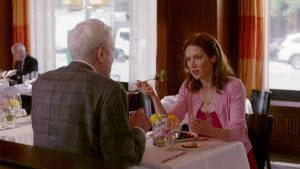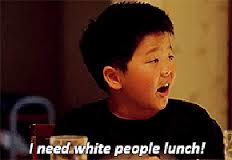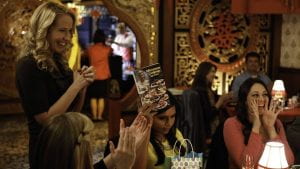When exploring themes present in Unbreakable Kimmy Schmidt, it can be difficult deciding where to start. I chose the third episode because I feel like it conveys a theme that is relatable and essential to myself and a lot of my peers. This episode makes an argument for leaving the past behind and branching out to experience more. The episode opens with Titus being awakened by Kimmy in a delusional state because she is having flashbacks of her days in the bunker. Titus suggests that Kimmy should go on a date to get her mind on a boy and off of her tragic past, but Kimmy insists she is nowhere near ready to go on a date. However, Kimmy is once again pressured into going on a date by Mrs. Voorhees who claims to have been in Kimmy’s position once, single in Manhattan. The show makes the argument that it is positive to branch out and have new experiences through flashbacks into Mrs. Voorhees’s life. It becomes revealed that she grew up as a Native American to a family that had little, but now she lives in a penthouse in Manhattan. Mrs. Voorhees’s success serves as the main argument for Kimmy to pursue a date that is set up for her.
The theme of leaving the past behind and branching out is most evident in this episode because of the multiple arguments presented through Kimmy and Mrs. Voorhees, but is also evident in the show as a whole. The whole show is about a young woman who had most of her life experiences robbed from her and faces the decision of whether to remain in that state or make the most of her newfound opportunities. A good indicator of this theme is the naming of the episodes. Each one is named after a new experience that Kimmy has. These include getting a job, going on a date, and graduating high school. I think this theme is culturally relevant to a lot of people like myself. College signifies newfound independence and with it comes opportunities that people should open up to trying. Unbreakable Kimmy Schmidt does a great job highlighting this lesson.

Her date didn’t go as planned; he was old as rocks!




















